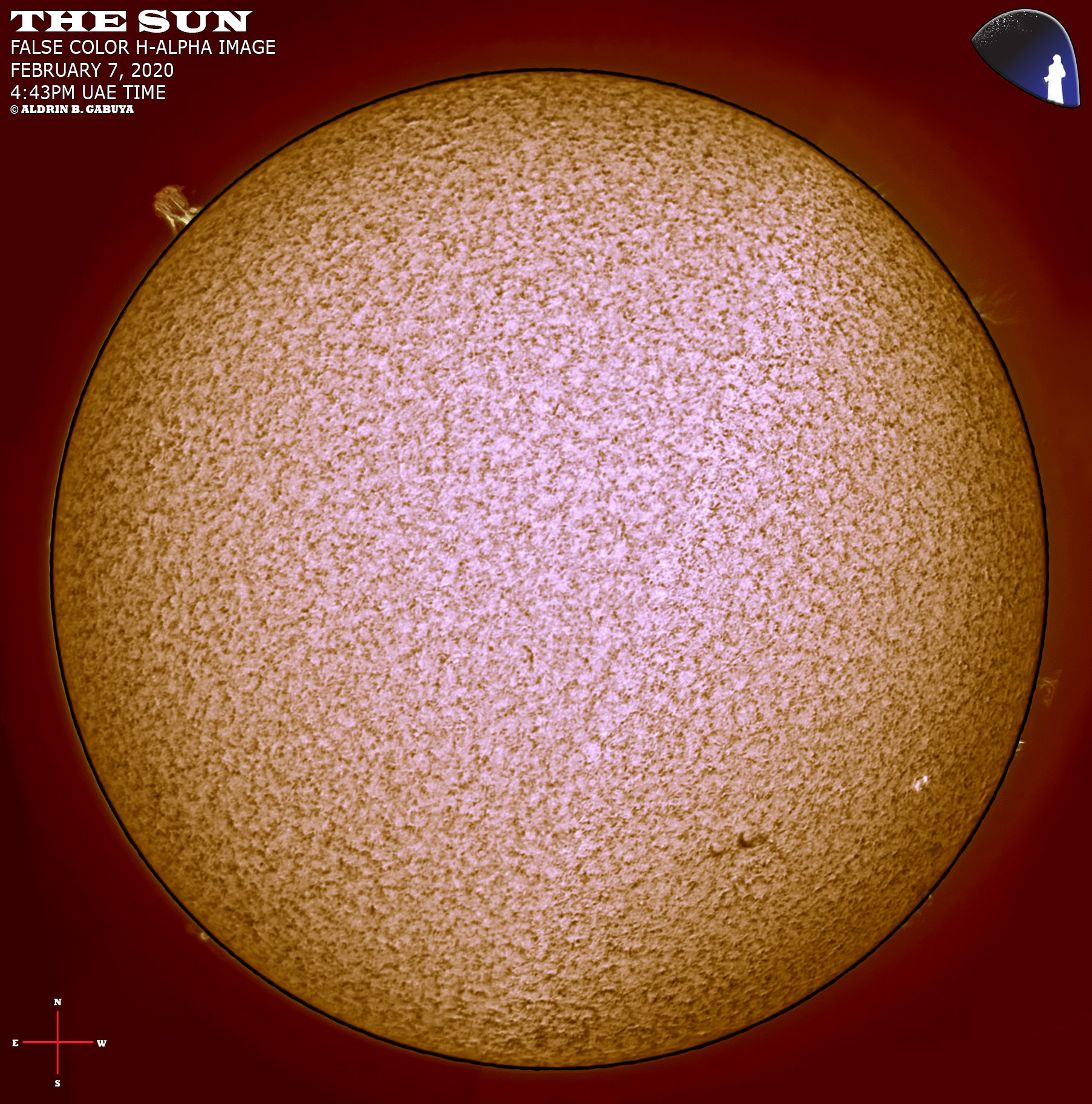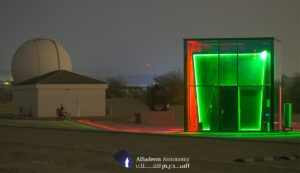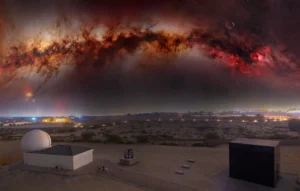Here are today’s solar images taken from Al Sadeem Observatory, February 7, 2020.
The sky was clear with intermittent light to moderate winds which provided good transparency but average seeing at the time these images were taken.
Solar activity remains at very low levels over the past 24 hours. No sunspot groups were visible at this moment. No significant flaring activity was recorded. The latest sunspot number (based on visual count and Wolf number calculation) is 0. The Sun exhibited some impressive huge eruptive prominences at the limbs, few elongated minor filaments at the far southern hemisphere and a developing enhanced plage at the southwestern quadrant as distinctively captured in H-alpha imagery.
Space weather agencies* forecast solar activity to remain at very low levels with chances of weak X-ray fluxes or flares ranging up to B-class intensity. Close monitoring is being conducted by numerous space weather agencies for any significant development.
Equipment used are Skywatcher 120mm refractor telescope with Baader filter and unmodified Canon EOS 1D Mark IV DSLR camera for visible imagery and Lunt H-alpha solar telescope and QHYCCDIII mono camera for H-alpha imagery, mounted on Skywatcher EQ6 Pro. Pre-processing of visible solar images was performed in PIPP, stacking in Autostakkert, slight wavelet adjustments in Registax 6 and post-processing in Adobe Photoshop CC.
*TECHNICAL REPORTS COURTESY OF SOLAR INFLUENCE DATA CENTER (SIDC), NOAA-SPACE WEATHER PREDICTION CENTER (NOAA-SWPC)
Weather Data (4:30 PM – 4:50 PM, February 7, 2020, from NCM Al Wathba Station):
Average Temperature: 27.1°C
Average Humidity: 27.5%
Average Wind Speed and Direction: 10.95 kph from NNE
Average Cloud Cover: 0%
Average Air Pressure: 1007.5 hpa
Average Solar Radiation: 250 W/m^2
Average UV Radiation: 0 µW/m^2 (low)








